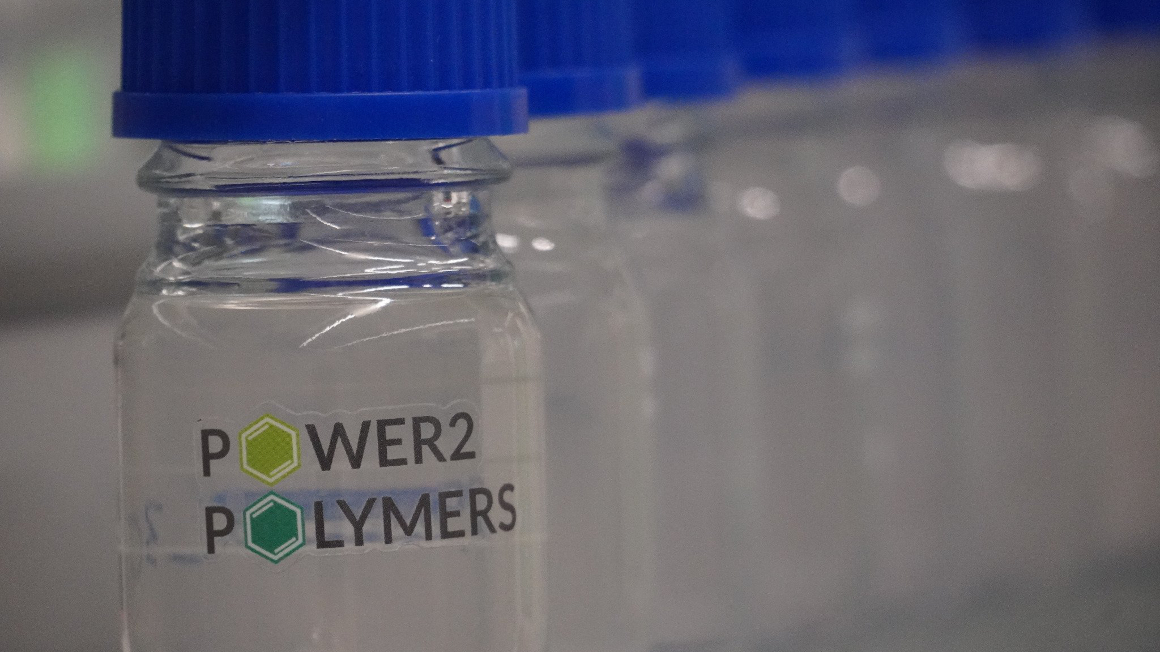Chemicals from industrial waste gases
The Power2Polymers project uses sustainable methanol to produce usable chemicals such as paraformaldehyde and polyols on a large scale – as a basis for adhesives and other industrial applications.

The BMFTR-funded research project Power2Polymers, coordinated by RWTH Aachen University, demonstrates how industrial waste gases can be put to good use. Project partner Prefere Paraform has now succeeded in processing two tonnes of sustainable methanol into paraformaldehyde. This will result in novel polyhydric alcohols (polyols) that can be used in adhesives, coatings, lubricants and sealants.
The methanol was obtained in a resource-efficient manner from the industrial waste gases of a steelworks as part of the BMFTR-funded Carbon2Chem project. This project, in turn, is currently developing and scaling up processes for converting CO2 from industrial waste gases into methanol using hydrogen. Both projects are interlinked and aim to demonstrate what a sustainable value chain of the future could look like – from waste gas to the raw material methanol and intermediate products to the finished product.
The basis for a CO2 circular economy
‘We want to replace fossil raw materials and have demonstrated the feasibility of this: CO₂ can become a raw material for new products,’ says Guido Schroer, project manager of Power2Polymers. ‘Our success with polyols is a concrete step forward for climate protection and the circular economy.’
These newly developed PME polyols (polyoxymethylene ethers) can now be produced on an industrial scale using paraformaldehyde. They are not only environmentally friendly, but also offer technical advantages that make them attractive for further applications. For example, they are said to be more compatible with materials, dry faster and be easier to recycle.
Industrial partner Jowat SE is supporting application development in the field of adhesives. A spin-off company is also to help bring the developments to market quickly. Power2Polymers aims to help reduce the chemical industry's significant CO2 emissions. While plastics have so far been based almost exclusively on petroleum, the project is showcasing an alternative for the future.
Key project for energy transition
In addition to RWTH Aachen University, Prefere Paraform GmbH and Jowat SE, the Max Planck Institute for Chemical Energy Conversion (MPI CEC) is also involved in the project, providing scientific support.
Power2Polymers is linked to the Kopernikus project P2X, another key project for the energy transition. The BMFTR is supporting so-called power-to-X technologies to permanently store volatile electricity.
chk


